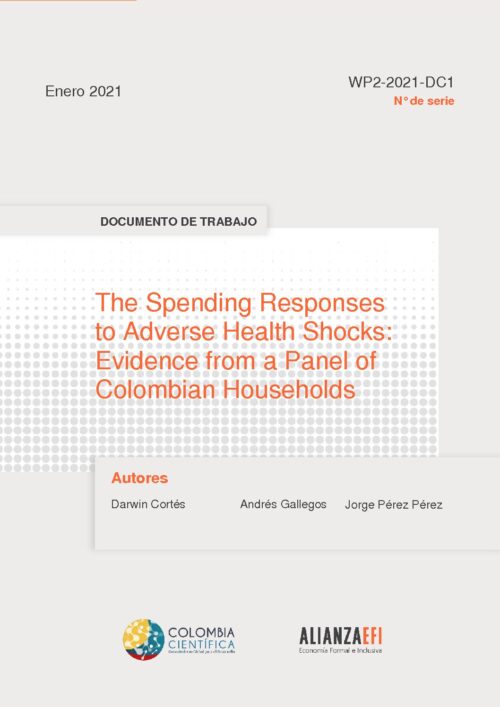We analyze the effect of adverse health shocks on households’ different expenditure shares using a difference in differences approach. We find that households engage in substitution between health and food spending in response to the negative health shocks. We find substantial heterogeneity in this trade off between current and future health mediated by access to social protection, job contract type, and location (urban-rural). Households from rural areas, with heads holding informal jobs, and without access to safety nets, are more vulnerable than others. We discuss several policy implications
Autores:
- Andrés Gallegos
- Darwin Cortés
- Jorge Pérez Pérez
Categorías:
- Proyecto 2
- Documentos de trabajo
